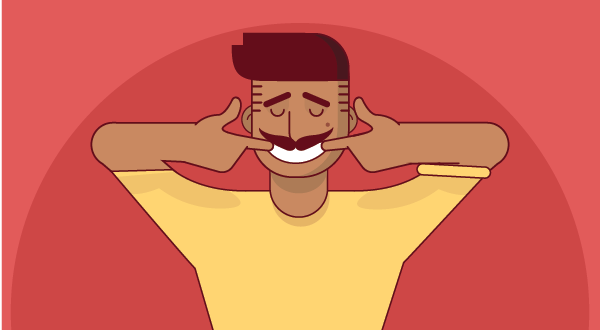Wil Schroter

As Founders, so many of us have joined this marathon because we believed there was our own version of "happiness" on the other side of it. The problem for many Founders, once they've "made it" is that they don't realize that money was never going to buy more happiness. In fact, it wasn't the problem they were solving for, to begin with.
Think of it like getting a big, honking bruise. In this case, that bruise is a metaphor for debt. When you have a bruise, you're constantly worried about it — it's super painful. So we think about how great it will be when it goes away. And eventually, it heals (we have some money). But all we did was get rid of the pain, we don't actually become "more healthy" than we were before.
The same goes for debt. When we're upside down on cash, all we can think about is cash. We have so many problems that stem from being broke, that having money seems like it will not only make those problems go away but also create an additional sensation that we assume must be "happiness."
But money doesn't make us happier. It just makes things less painful.
C'mon, Money Can Buy Fun Stuff, Right?
Don't get me wrong — money definitely buys things that can bring us pleasure. But where that argument breaks down substantially is that the longevity of that happiness pales in comparison to the longevity of anxiety, frustration, and sadness.
This is the part that we constantly get wrong. We can't "buy happiness." Money doesn't actually do that. It can buy us some novelty (think about the last awesome thing you bought), but inevitably that novelty fades, and we're more or less right back to where we started. Did you ever eat a delicious ice cream cone and savor it for days? Yeah, me neither.
It actually compounds over time, because each time we level up on some nice stuff to buy, it makes it that much harder to replicate that dopamine boost again. Buying that BMW was awesome, and maybe we upgraded to a Bentley, but at some point, there's sorta nowhere to go, and the relative difference in satisfaction (relative to price) drops dramatically. We actually run out of things that can make us "more happy."
Debt Lasts Forever
Conversely, debt is a bottomless pit of emotion! Debt doesn't have the fleeting dopamine hit that spending money and buying nice stuff does. I can be reminded of debt 24x7, not only in my own caveperson mind but then amplified by all of the other people in my life who are affected by it. It can ruin relationships, create a massive strain on my mental and physical health, and emotionally turn me inside out.
Oh yes, unlike having money, debt is a bruise that not only sticks around, it often gets worse with time. We feel it in every move we make in life, and we're constantly reminded of the pain. That feeling is geometrically worse and painful than having money is positive.
We Want Freedom From Pain
What we're looking for is "freedom from pain." And friends, I sincerely hope that all of you find that place. But let's not confuse "freedom from pain" with "happiness." All of the effort we are about to put in on our startups may indeed provide that freedom and flexibility we're longing for, but that's pretty much where the payoff ends. After that, all of the things we're going to try to do to ensure that "ongoing happiness" is going to fail. If we were miserable people before money, we're just going to be miserable people with money.
Instead, we need to think of this as two separate journeys. One journey is simply a financial one — we are trying to stack enough cash to make painful stuff go away — it's just not a happiness journey. The second journey is the happiness journey, and that's where we begin to confront all of the things that prevented us from being happy that we often camouflaged with the excuse that it was "a money problem."
The good news is we can work on both simultaneously, we just need to separate those goals. In the end, it's the only way to achieve the outcome we're truly looking for.
In Case You Missed It
Fat, Sick, and Nearly Startup (podcast). Join Wil and Ryan as they break down the ways Founders can learn to deal with personal hardships that are often a result of our own Startups — while we're still running them.
Optimizing for Happiness. We do something in our planning at Startups.com that is relatively unheard of in the startup business: we optimize for happiness. Here’s how we do it.
How I Harness My Insane Startup Anxiety. There are two types of Founders: those that admit they are wracked with anxiety, and those that are lying about it. We’re all going to deal with it for the rest of our lives — so why not use it as a superpower, instead of reacting like it’s kryptonite?
Find this article helpful?
This is just a small sample! Register to unlock our in-depth courses, hundreds of video courses, and a library of playbooks and articles to grow your startup fast. Let us Let us show you!
Submission confirms agreement to our Terms of Service and Privacy Policy.
Already a member? Login
Start a Membership to join the discussion.
Already a member? Login

Money can buy you a jetski. Have you ever seen an unhappy person on a jetski? I thought not.